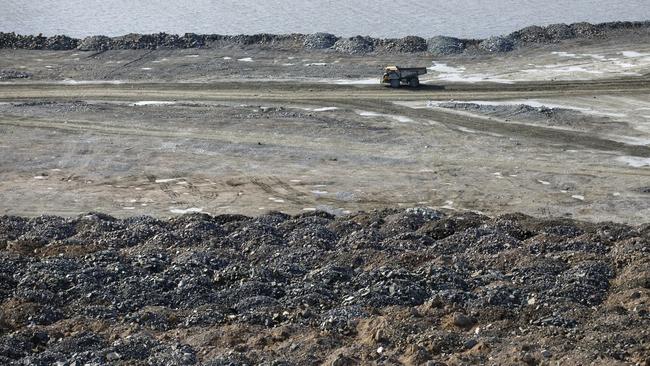Coronavirus fallout reaches world’s remotest mines
Four of the world’s largest miners say they are closing production or slowing project construction amid the coronavirus pandemic.

Four of the world’s largest miners say they are closing production or slowing project construction, as fallout from the coronavirus pandemic reaches beyond the sector’s share prices to some of its most isolated mines.
As with other sectors, investors have dumped mining shares amid expectations the pandemic will substantially diminish global growth and demand for resources. But the mining industry is unique in that its main assets and people are typically in remote areas, presenting distinctive challenges.
Anglo American, and America’s two largest miners, Newmont and Freeport-McMoRan, said on Monday they were suspending projects or stopping some mining in Peru after the country announced a national quarantine to curb the coronavirus’s spread.
Brazil’s Vale said late on Monday it would close a nickel mine in a secluded part of northwest Canada for four weeks, in order to prevent workers it flies in from potentially spreading the virus into local communities.
Rio Tinto and Lundin Mining have also restricted new projects, and miners worldwide are curbing travel, asking workers to take stringent tests before they go to far-flung mines and preparing medical isolation units at the sites.
“This is the new dynamic, miners closing down production as coronavirus spreads,” UBS mining analyst Myles Allsop.
Factories and businesses are closing around the world as COVID-19 continues its spread. For example, Fiat Chrysler and Peugeot maker PSA are halting almost all car production in Europe, while Volkswagen has shut factories in Italy and Spain.
The effects on miners have taken longer to sink in, and even now the industry continues to churn out resources. Analysts say that will begin to change as government restrictions and concerns for employee safety lead to more mine closures, and as companies adjust production to the likely fall-off in demand.
“The onset of COVID-19 has introduced a global macro challenge the likes of which we have not seen in my lifetime,” Ivan Arriagada, chief executive of Chilean miner Antofagasta, said while delivering full-year results on Tuesday.
The spread of the virus has hit miners’ stocks and bonds hard. Anglo American’s shares are down 40 per cent this year, Glencore has fallen 41 per cent and US copper miner Freeport-McMoRan has lost over half its market value.
The cost of insuring these companies’ bonds against default has also risen. On Tuesday, investors were paying more than $US485,989 ($808,000) a year to insure $US10m of Glencore’s debt against default for five years using credit default swaps, according to IHS Markit. At the start of the year, the same insurance for Glencore cost $US127,000. For Anglo American, the cost reached $US307,150, up from $US84,000.
Antofagasta said it had now secured extra warehouse space for its copper in case of cancelled sales. It has also stocked up on supplies such as spare machine parts and sulfuric acid. The company, with one of its mines 1200m above sea level in the Andes mountains, has also severely restricted access to its sites and is trying to make mines work autonomously from each other to reduce the number of people who have to fly in and out.
Canada’s Agnico Eagle Mines has two mines on the cusp of the Arctic Circle, about 1500km north of the nearest city, Saskatoon. Before flying into one of those mines, employees are screened for illness by medical personnel before they begin their trip. The company has placed portable sinks at the pick-up locations and is spraying aircraft with disinfectant. Boarding passes are no longer used so as to limit the virus’s to spread. At all its sites, the gold miner has also suspended visits from non-essential visitors and contractors.
Kinross Gold operates in northeast Russia what is known in the industry as the world’s most remote mine. Measures taken there include setting up medical isolation units and asking employees to gather only in smaller groups, with the result that the company has extended the hours that its cafeteria operates, a spokesman said. While the mine’s workforce typically operates in shifts of several weeks on and several weeks off, these shifts are now being extended to limit the number of people travelling in and out.
If miners do curtail production, this should support commodities prices, said Mr Allsop of UBS. The price of coal held up as other commodities fell at the height of the outbreak in China, as the country’s coal mines had closed down.



To join the conversation, please log in. Don't have an account? Register
Join the conversation, you are commenting as Logout